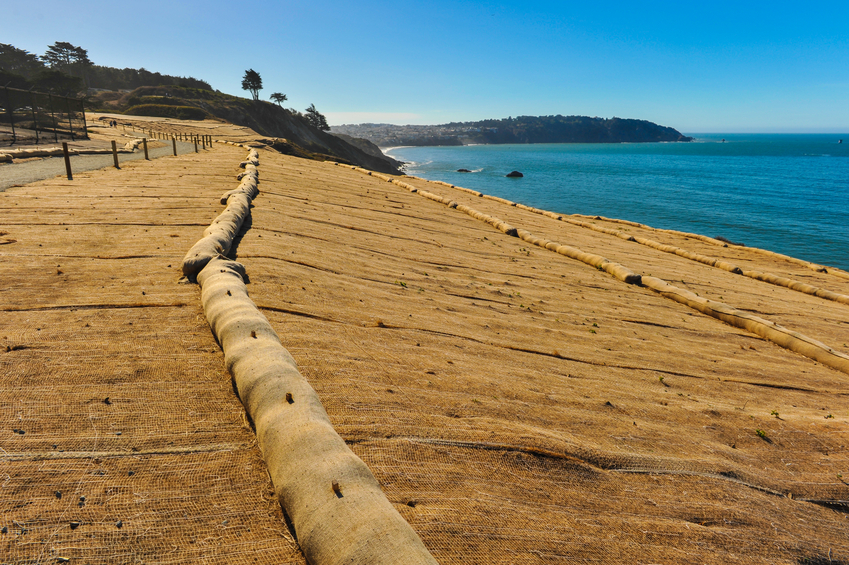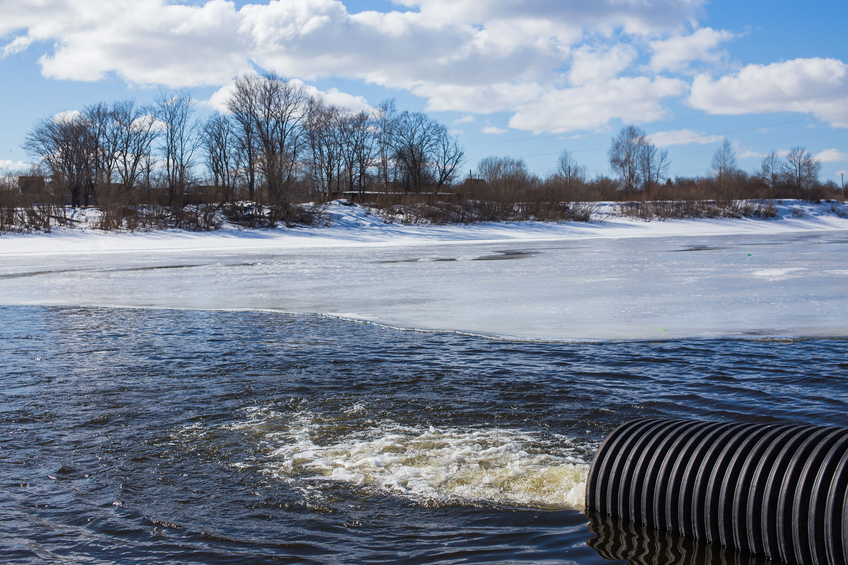Maryland Stormwater and Ethics 16 PDH Discount Package 3
Courses in this Package
Construction Site Storm Water - Erosion Control (C03-001)
Developing Your Stormwater Pollution Prevention Plan (SWPPP) (C04-057)
Transportation Stormwater Permit Compendium (C07-015)
General Principles of Engineering Ethics (LE2-016)

This online engineering PDH course presents EPA's control measures to minimize erosion at construction sites due to higher peak flow rates, increased flooding, etc.
Erosion and sedimentation related to construction site storm water runoff can significantly affect the aquatic population and hydraulic characteristics of the receiving waters. Alterations in hydraulic characteristics of streams receiving runoff include higher peak flow rates, increased frequency and duration of bankfull and subbankfull flows, increased occurrences of downstream flooding, and reduced baseflow levels.
EPA recognizes that such alterations can be prevented by implementing an effective storm water management program. Therefore the EPA published the Storm Water Phase II Rule on
This 3 PDH online course is applicable to municipality owners and/or operators, construction contractors/workers, site developers, engineers, managers, and all other personnel involved in the implementation of erosion controls for storm water runoff from construction sites.
This PE continuing education course is intended to provide you with the following specific knowledge and skills:
- Types and methods of erosion control systems
- Applicability
- Siting and design criteria
- Maintenance and cost considerations
- Effectiveness and limitations
In this professional engineering CEU course, you need to review EPA’s Best Management Practice relating to the “Erosion Control” section of the “Construction Site Storm Water Runoff Control”. This section of the BMP addresses the following erosion control methods:
- Chemical Stabilization
- Mulching
- Permanent Seeding
- Sodding
- Soil Roughening
- Geotextiles
- Gradient Terraces
- Soil Retention
- Temporary Slope Drain
- Temporary Stream Crossings
- Vegetated Buffer
- Construction Sequencing
- Dust Control
Once you complete your course review, you need to take a multiple-choice quiz consisting of twenty (20) questions to earn 3 PDH credits. The quiz will be based on the “Erosion Control” section of this EPA publication.
Upon successful completion of the quiz, print your Certificate of Completion instantly. (Note: if you are paying by check or money order, you will be able to print it after we receive your payment.) For your convenience, we will also email it to you. Please note that you can log in to your account at any time to access and print your Certificate of Completion.

This online engineering PDH offers steps for planning how to prevent and contain stormwater pollution. It offers a step by step guide on what should be included in the plan, as well as helpful tips for how the plan can be maintained, adhered to, and exceeded in order to ensure a high level of quality.
Stormwater runoff is water from rain or snowmelt that does not immediately infiltrate into the ground and flows over or through natural or man-made storage or conveyance systems. When undeveloped areas are converted to land uses with impervious surfaces such as buildings, parking lots, and roads, the natural hydrology of the land is altered and can result in increased surface runoff rates, volumes, and pollutant loads.
This course provides useful tips about maintaining a SWPPP, as well as examples of and foresight into what can go wrong with various different kinds of materials which are commonly found at industrial sites. This includes solids, liquids, and waste. It also provides useful information on how to effectively and efficiently handle stormwater discharge in the event that control measures fail, and information on monitoring pollutants in stormwater discharge.
This 4 PDH online course is applicable to industrial, civil, environmental, and sustainability engineers as well as others interested in gaining a basic understanding about developing a stormwater pollution prevention plan.
This PE continuing education course is intended to provide you with the following specific knowledge and skills:
- Understanding what causes stormwater pollution and its effects on the environment
- Learning how to prevent and contain stormwater pollution
- Learning how to develop a stormwater pollution prevention plan in order to be in compliance with a National Pollutant Discharge Elimination System permit
- Learning how to analyze the particular pollutants in your stormwater discharge
Upon successful completion of the quiz, print your Certificate of Completion instantly. (Note: if you are paying by check or money order, you will be able to print it after we receive your payment.) For your convenience, we will also email it to you. Please note that you can log in to your account at any time to access and print your Certificate of Completion.

This online engineering PDH course presents examples of different permitting approaches that the U.S. Environmental Protection Agency (EPA) found in a nationwide review of National Pollutant Discharge Elimination System (NPDES) permits that specifically address linear, department of transportation (DOT) municipal separate storm sewer systems (MS4s).
Stormwater discharge is an issue which requires both proactivity and reactivity; the MS4 permits provide a framework within which projects can adhere to practices aimed at reducing the amount of pollutants found in stormwater discharge which makes its way into the environment.
This course features useful information and excerpts from the MS4 permits of many different States. It uses these excerpts to illustrate key points regarding each section of the packet. It also features broader tips which apply to general projects which may be susceptible to pollutants in stormwater discharge.
This 7 PDH online course is applicable to civil, environmental, stormwater management and sustainability engineers as well as other technical personnel interested in learning more about MS4 permit regulations.
This PE continuing education course is intended to provide you with the following specific knowledge and skills:
- Understanding the key idea behind MS4 permit requirements
- Familiarizing with the establishment of the stormwater management program
- Learning about the permit requirements for facilities, roadways and storm sewer infrastructure
- Familiarizing with the Project Development and Active Construction requirements
- Familiarizing with the various Best Management Practices of the different DOTs
Upon successful completion of the quiz, print your Certificate of Completion instantly. (Note: if you are paying by check or money order, you will be able to print it after we receive your payment.) For your convenience, we will also email it to you. Please note that you can log in to your account at any time to access and print your Certificate of Completion.

This online engineering PDH course presents the principles of engineering ethics that every engineer is expected to live by when practicing their profession.
Engineering ethics is (1) the study of moral issues and decisions confronting individuals and organizations involved in engineering and (2) the study of related questions about moral conduct, character, ideals and relationships of peoples and organizations involved in technological development (Martin and Schinzinger, Ethics in Engineering).
This course describes the fundamental legal concepts with which very engineer should be familiar. It also presents unique disciplinary case studies selected from across the nation, as well as hypothetical ethical challenges that demonstrate how difficult it can be to apply the code of ethics for engineers.
This 2 PDH online course is applicable to all professional engineers who are either required to fulfill 2 PDH in engineering ethics or are interested in broadening their understanding of what it means to practice and uphold the honor and integrity of their engineering profession while holding the utmost safety, health, and welfare of the public.
This PE continuing education course is intended to provide you with the following specific knowledge and skills:
- Understanding the common definition of ethics regarding engineering
- Learning about the important principles of the engineer’s professional responsibility
- Learning the do’s and don’ts through several ethical and disciplinary cases
- Understanding what it means to practise and uphold the honor and integrity of the engineering profession
Upon successful completion of the quiz, print your Certificate of Completion instantly. (Note: if you are paying by check or money order, you will be able to print it after we receive your payment.) For your convenience, we will also email it to you. Please note that you can log in to your account at any time to access and print your Certificate of Completion.